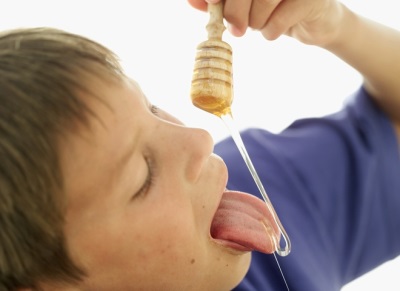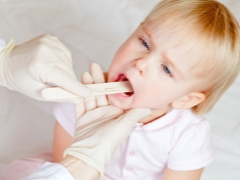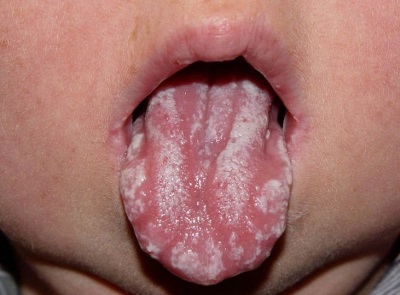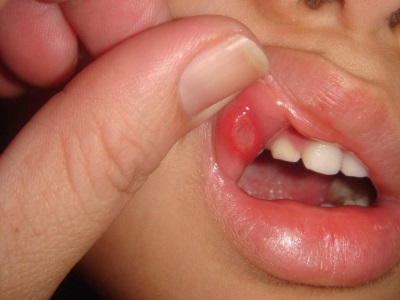How to treat stomatitis in children?
With such an unpleasant disease as child stomatitis, for their lives, almost everyone faces. Especially often inflammations of the oral mucosa occur in children, so for all parents information on how to alleviate the baby’s condition is very relevant.
Babies up to a year
Stomatitis in children younger than a year must be treated under the supervision of a doctor. The most common form of stomatitis at this age is candida, the treatment of which is aimed at creating an alkaline environment in the mouth (soda is often used for this), the use of antifungal drugs and a decrease in temperature during fever.
Children over 6 months may develop herpes stomatitis, which is treated with special antiviral agents, for example, acyclovir cream or oxolinic ointment. Since this stomatitis is often marked by high fever, the child is prescribed a febrifuge. Often the child’s condition worsens so much that he needs hospitalization.
Older children
In the treatment of children older than one year, who most often get sick aphthous stomatitis, try to eliminate the symptoms of the disease. First of all, reduce the pain of inflammatory elements in the mucous membranes, and also often recommend rinsing the mouth.
In grown-up children, the appearance of herpes or candidal stomatitis is also possible, and since the treatment for such forms should be prescribed by a doctor, in case of suspicion of their child's development, a doctor must be shown.
Another cause of lesions of the oral mucosa is anemia. Having identified iron deficiency as the cause of stomatitis, the child will be given iron-containing drugs that will help prevent the appearance of inflammation in the mouth in the future.

Home medication
In mild form, when the child’s condition is practically unchanged (temperature is normal), and mucosal lesions are few and small in size, it is possible to cope with stomatitis at home by treating with antiseptics and eliminating pain.
Antiseptic
Ordinary water can be used for rinsing, but the use of antiseptics will be more effective. Their selection is quite extensive, so you can apply for rinsing:
- Chlorophilip - the solution must be diluted with water 1: 5.
- Chlorhexidine.
- Rotokan - A teaspoon of the drug is stirred in 200 ml of water.
- Furacilin - dissolve 2 tablets in half a cup of water.
- Hydrogen peroxide - In 1/2 glass of water part a tablespoon.
- Malavit - 10 drops drop in 200 ml of water.
Painkillers
Since pain is the main symptom of any stomatitis, therefore, the reduction of pain is an important point of treatment. It would be best to use gels or sprays that have a quick analgesic effect.
To effective painkillers remedies for stomatitis include:
Folk remedies
One of the most popular and frequently used products is soda solution.Rinsing with this solution can be carried out in children older than 3-4 years who know how to get water in the mouth, keep it there, and then spit it out. For its preparation, a teaspoon of soda is stirred in 150 ml of warmed boiled water. Rinse your mouth with this solution every two hours.
Herbal infusions and decoctions can be used for rinsing:
You can also prepare infusions of several of these herbs.
People also recommend to grease the sores with honey, apply raw grated potatoes to them, and gruel from aloe leaves. It promotes faster healing and the use of oils, such as flaxseed oil, peach oil or rosehip oil.
From the egg white, you can prepare a rinse, which will be well envelop the site of lesions and accelerate their healing. To do this, just stir well one protein in a glass of boiled water.

What can not be treated?
- In the treatment of stomatitis in young children is forbidden to use aerosols. But even older children should not use an aerosol with 10% lidocaine, because with its repeated use, the mucous membrane is tightened and unpleasant sensations appear.
- Do not use for the treatment of stomatitis any cauterizing drugs. They not only increase the pain, but can also be a risk for necrotization and degeneration of ulcers.
- The use of dyes (blue, green paint, fucorcin) is also not recommended. This not only does not speed recovery, but can even lengthen the healing process and prevent the doctor from clearly seeing what is happening in the child’s mouth.
- Do not use the drug maraslavin in children, as it provokes fever and loosens the gums.
The very popular for stomatitis drug holisala has a rather specific smell and taste, so give it to your baby for the first time in a minimal dose. And if the child does not strongly protest against such a medicine, you can use it further.
Baby care
Thanks to the correct approach to the care of the baby, you can alleviate the condition of the child. In this case, parents need to be patient and persistent, as well as strictly follow the recommendations of the doctor.
The issue of nutrition arises with stomatitis one of the first and most important, because a child with sores in the mouth is very hard to eat. If the baby refuses to eat, you should not insist, but it is important to take care of sufficient drinking and regularly give the child drinks (you can use a straw for drinking).
Food for a sick stomatitis baby should be only soft (perfectly mashed potatoes) and warm (by no means hot). Give your favorite calorie favorite foods that the child does not stay hungry. No sharp, sweet and sour foods during the illness can be given. After each meal, it is important to rinse your mouth so that no food remains in your mouth.














